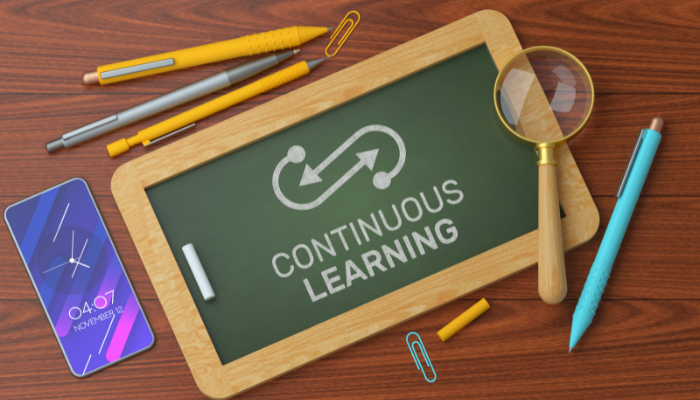
In challenging periods, enterprises frequently wrestle with dwindling profits, intensified competition, and inescapable ambiguity in the marketplace. Evidently, such uncertainty would impact employees’ decision-making abilities and overall performance. These circumstances may also affect them emotionally and make them feel less motivated.
The situation was observed distinctly during the Covid pandemic, as employees were battling with low moods and concentration, and lacking the motivation to do their job.
Another random survey, including 1,099 American employees, directed by SHRM reveals that nearly 41% of them experience work-induced exhaustion. Additionally, about 23% admit to battling the blues.
Undoubtedly, business mentorship can serve as a potent instrument to tackle obstacles in difficult situations. By offering support, encouragement, and guidance, mentors can bolster staff morale and performance through mentorship programs; ultimately empowering teams to overcome various hurdles.
Business mentoring is like a win-win deal between seasoned pros and aspiring new joiners or existing professionals. Importantly, as situations arise where organizations encounter unexpected hurdles, mentorship can truly function as a catalyst for discovering innovative solutions and strategies.
Considering the hurdles and the significance of efficient guidance in trying times, this blog will unfold five priceless tips for business mentoring finely tailored for various firms.
Establishment of Clear Goals and Expectations

In business mentorship, the top nugget for success is setting clear goals and expectations, further detailed below.
A. Determine Specific Objectives for the Mentorship:
As a mentor, it’s key to create a foundation conducive to success for mentees from the inception. One judicious approach to accomplishing this feat entails delineating explicit goals for each mentorship liaison.
For example, seasoned guides might endeavor to aid their protégés in cultivating robust leadership prowess, refining their aptitude for addressing intricate workplace issues, and bolstering their confidence.
Importantly, by identifying specific objectives, the mentorship initiative can more effectively address the distinct requirements of every participant.
Mentors can craft well-thought-out goals for aspirants by utilizing the SMART framework. This would ensure mentees’ objectives are specific in nature and measurable yet attainable, relevant, and time-bound.
B. Communicate Expectations Clearly Between Mentor and Mentee:
Equally important is transparent communication between mentors and mentees for establishing clear expectations.
For instance, mentors ought to clarify their available hours, duration, and favored methods of communication with mentees along with proteges’ commitment. This way, both sides can resonate on the same wavelength concerning several aspects of agreements.
Furthermore, mentees should feel comfortable sharing their own objectives for professional development.
Also, by candidly talking over preferences, aims, and targets, both individuals can dodge mix-ups and cultivate a solid connection.
Besides, honest conversations allow those involved to tweak their game plans when necessary. Consequently, this increases the odds of hitting their targeted results.
Adapt Mentorship Strategies to the Current Situation

In today’s business environment, mentoring pairs ought to be geared up for tailoring their mentorship approaches in line with present scenarios. By capitalizing on digital and virtual guidance tools and keeping an open mind for tweaking plans and tactics as necessary, they can effectively sail through the obstacles in today’s world.
A. Utilization of a Virtual Mentoring Platform:
The emergence of digital and virtual mentoring platforms has revolutionized communication between mentors and mentees, offering unprecedented flexibility. Interestingly, virtual mentorship platforms can assist in bridging the geographical gap for most businesses and establishing a connection between both parties with a click of a few buttons.
Importantly, with instant communication being possible with virtual platforms, both sides can talk about high-priority plans and create tactics based on the present circumstances.
B. Adaptability to Changing Plans:
Being open to adjusting plans and strategies nurtures a vibrant learning atmosphere, benefiting both the guides and the learners. In fact, organizations that welcome plan adjustments may witness a surge in problem-solving prowess among the workforce as they learn to adapt and think creatively.
Importantly both parties being flexible in their approach and ready to reassess goals as time demands, they would be able to align with the evolving landscape. Essentially, embracing change lets mentors offer priceless advice, suiting evolving conditions while learners thrive in diverse scenarios.
Above all, by embracing change and continually evaluating growth plans, individuals can swiftly adjust their paths centered on goals and success.
Flash Mentoring is an ideal option for each party to connect with the other instantly as when situations demand and adjust their plans accordingly.
Foster open communication and active listening

Fostering open communication and active listening during mentoring sessions is crucial for mentees’ growth and development. For the same, mentors should encourage honest dialogue with protegees about challenges and offer guidance and support in overcoming obstacles.
A. Encourage Honest Dialogue About Challenges Faced:
By cultivating honest dialogue rooted in trust, mentors can pinpoint roadblocks to the advancement and propose bespoke solutions attuned to each mentee’s requirements.
Elaborately put, by cultivating an open-minded environment where mentees can be honest about their challenges, mentors can offer significant insights and tweak their guidance more effectively to address individual requirements.
This approach also lets mentees sense that their input matters and that they hold a vital role within the organization.
For example, a mentee grappling with time management challenges could reap the benefits when their mentor imparts particular tactics, such as establishing priorities or employing efficiency-enhancing tools.
B. Mentors Must Offer Guidance and Support in Overcoming Obstacles:
Offering guidance and support to help mentees surmount hurdles directly impacts their overall success in achieving personal and professional goals.
In fact, experiencing support boosts the workforce’s sense of dedication and loyalty toward their organization.
Also, by exchanging personal anecdotes or tapping into sector-specific expertise, mentors can furnish their proteges with pragmatic guidance and pertinent resources to confront obstacles with full force.
Moreover, guides that foster troubleshooting abilities through cleverly devised tactics empower proteges to arrive at judicious choices while steering through the intricacies of their selected domains.
Emphasize Continuous Learning and Development

Business mentoring holds significant sway in promoting constant learning and development. This transpires when mentors inspire mentees to delve into novel skills and enhance their expertise. Moreover, they ought to offer insights and tactics for the mentee’s professional advancement. In the subsequent sections, both facets are meticulously elucidated.
A. Encouragement To Explore New Skills and Acquire Latest Knowledge:
Mentors’ mentoring tips and strategies should prioritize upskilling so that they are prepared to come up with creative approaches in challenging situations as when a scenario demands.
For example, mentors ought to encourage their mentees to determine a pair of professional hurdles or questions they possess and any form of assistance they believe would assist them in enhancing their knowledge such as upskilling program.
A few more scenarios would be:
1. A mentor in the marketing domain may urge a mentee to study emerging trends in digital advertising or social media algorithms.
2. Budding financial professionals might find themselves in the care of a seasoned mentor, picking up new tricks to generate revenue and smart ways of money management.
Significantly, through nurturing a growth-oriented mindset in proteges through continuous learning initiatives, mentors not only catalyze individual progress but also equip them to face potential hurdles and seize upcoming prospects.
B. Provide Resources for Professional Growth:
Proficient mentors can impart invaluable tactical counsel and provide access to vital resources such as software for financial decisions, fostering their protégés’ career advancement.
A seasoned leader may further divulge tried-and-true tactics for maneuvering workplace intricacies or securing highly sought-after promotions, thereby empowering their protégés to surmount hurdles and attain professional benchmarks.
In the grand scheme of things, these expert perspectives or resources can servce as formidable instruments for propelling achievement and realizing both immediate and extended career objectives.
Provide Encouragement and Motivation

Guiding figures hold the key to cultivating a workspace that brims with inspiration and drives team members, significantly bolstering their career trajectory and skill enhancement. This can be achieved by:
- Celebrating the mentees’ success–no matter how small they are, and
- Providing constructive feedback to help mentees to identify areas for improvement
Let’s examine these aspects one by one elaborately.
A. Celebrate Small Successes:
A quintessential component of guiding proteges includes acknowledging and applauding their accomplishments, regardless of magnitude. Importantly, recognizing employees’ accomplishments significantly impacts their job satisfaction. Also, it helps to boost confidence and inspires continuous improvement.
For instance, a guide might commend a protégé’s extraordinary presentation aptitude amid a group gathering or laud their efficacy in front of team members for addressing a perplexing dilemma. By engaging in appreciating acts like these, mentors not only acknowledge the diligent efforts of their mentees but also cultivate an environment brimming with hope and zeal.
B. Offer Constructive Feedback:
A crucial element of mentorship involves giving tough feedback positively that fosters growth in an employee’s professional path. Essentially, mentors ought to ascertain that team members comprehend the intent behind constructive feedback, which aims to foster their growth rather than to denigrate their efforts.
Simply put, a proficient mentor is endowed with the knack of providing focused feedback, peppered with directions, enabling their protégés to pinpoint aspects requiring enhancement and formulate effectual plans for realizing progress.
For instance, should a mentee grapple with public speaking or delivering presentations, their mentor may impart valuable insights on refining communication skills, emphasizing particular facets warranting focus, rather than merely bestowing broad counsel.
Conclusion
The business mentoring tips presented here will help mentees in challenging times to navigate unforeseen obstacles. Importantly, following these mentoring tips for mentees will help both parties to forge a strong alliance to ensure mutual growth and success.
Moreover, businesses may consider harnessing virtual platforms such as Mentoring Complete, enabling mentees to effortlessly link up with mentors and support them in sustaining transparent communication, thus optimizing the perks of mentorship.
Gain more clarity ⤵
Frequently Asked Questions
Q. What are some key tips for business mentoring during challenging times?
Ans. Communication, adapting to change, staying focused, fostering growth, and empathy.
Q. How do I provide constructive feedback without demoralizing my team during difficult times?
Ans. Frame feedback positively, focus on specific areas for improvement, and highlight their strengths.
Q. How can you integrate empathy into business mentoring?
Ans. Understand the mentee’s perspective, show compassion, be nonjudgmental, and offer emotional support.